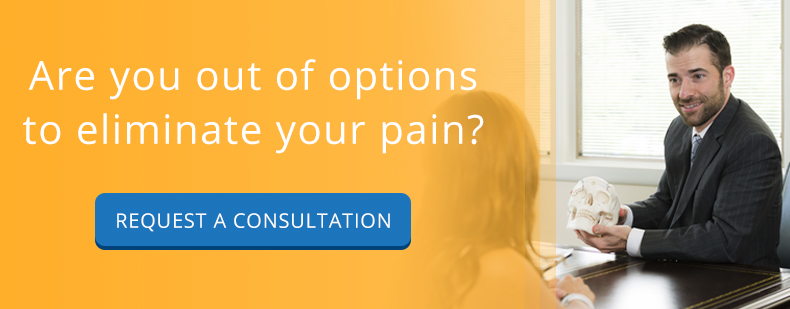Trigeminal neuralgia (TGN) type 2 is a form of a rare neurological disorder that presents long-lasting pain throughout one side of your face. TGN is known for pain levels that are debilitating, and medical management sometimes fails to keep this pain under control. When medication cannot successfully manage your atypical trigeminal neuralgia, it may be time to consider consulting with a neurosurgeon to explore additional forms of treatment.
How will you know that you’ve found the best neurosurgeon to treat your type 2 trigeminal neuralgia? Try using these six areas to consider surgeons and make your decision.
Education and Specialization
Neurosurgeons are not the same as neurologists. While they both focus on disorders and disabilities related to the nervous system, neurosurgeons are specifically educated in the field of surgery. After completing medical school, most neurosurgeons spend their internship in the area of general surgery.
After that, follow-on residencies and fellowships that are specific to neurosurgery help to specifically hone the surgeon’s skills. In addition, those residencies and fellowships, which may last five years or longer, help neurosurgeons learn about particular disorders.
That continuing education may lead a neurosurgeon to specialize in a certain area. When you are looking for a neurosurgeon for your trigeminal neuralgia type 2, you’ll best be served by a medical professional who has spent significant time learning about and working with disorders specific to facial pain.
Research and Publications
Not all doctors pursue publication, but many participate in research that further hones their skills and leads to a higher level of expertise in the application of surgical techniques. Research online or directly ask your neurosurgeon which areas they have targeted for research and if any of their findings have been published.
In addition, you’ll be able to look at the affiliations neurosurgeons may have with leading medical schools, where they not only lead exploration into advanced treatment types but also interface with other industry-leading professionals.
Professional Affiliation
Neurosurgeons devote a significant amount of time to continuous education. Additionally, neurosurgeons use the opportunity to learn from others in their field through professional organizations that facilitate peer interactions and learning.
By using education modules and peer-learning opportunities, neurosurgeons can remain at the cutting edge of medicine – and thus provide the best possible care for your atypical trigeminal neuralgia. In addition to local- and school-specific professional affiliations, you can look for neurosurgeons who belong to some of these leading organizations:
- American Association of Neurological Surgeons (AANS)
- Neurosurgical Society of America (NSA)
- Society of Neurological Surgeons (SNS)
- Fellow of the American College of Surgeons (FACS)
- Fellow of the American Association of Neurological Surgeons (FAANS)
Team Care Approach
Neurosurgeons do not work in a vacuum. As a part of your trigeminal neuralgia type 2 treatment plan, you’ll want to identify and work with a neurosurgeon who is part of a great team of professionals. Your care should be supported by a well-trained office staff and schedulers, nurses well-versed in the field of neurology and surgical cohorts.
Depending on the type of surgery identified to treat your TGN, you’ll interact with anesthesiologists, internists, pain medicine specialists and a variety of therapists. With certain modalities, like Gamma Knife Radiation, your neurosurgeon will work with a team of radiation specialists. As you work to choose the best neurosurgeon to provide your care, take a good look at his or her entire support team as well.
Personal Comfort
You’re not necessarily looking for a new best friend in your chosen neurosurgeon, but you should work with a medical professional who puts you at ease. Choosing a surgical path forward after medical management fails to treat your trigeminal neuralgia can be a process fraught with anxiety.
Spend time discussing your disorder, your questions, your fears and your expectations with your neurosurgeon. Openly share your medical history, including any details that may complicate the treatment of your trigeminal neuralgia. Do this until you feel a high level of personal comfort with your neurosurgeon – and make this one of your decision points, so that you proceed with a professional you feel confident entrusting with your care.
When you are in great pain, you may find it hard to form this relationship – or even to conduct the research necessary in the other areas of consideration for choosing a neurosurgeon. Ask a relative or friend – or several – to support both the process of finding a neurosurgeon and the road leading up to surgery and then through recovery.
Recommendations and Accolades
Study recommendations and accolades for the neurosurgeons you are considering. You may be referred to a particular practice by your neurologist or primary care physician – ask them for recommendations based on their personal experience. Recommendations from past patients may also be obtained directly from the practice website or through a number of online doctor rating pages.
Additionally, consider any accolades a particular neurosurgeon has received from local or professional publications or organizations. Although trigeminal neuralgia affects a very small population of people, you may even reach out to disorder-specific organizations for recommendations.
Choosing the Right Neurosurgeon for You
Ultimately, your own needs and expectations, and the outcome of your meetings with neurosurgeons, will lead you to choose the right professional for your care. Be persistent. Scheduling and insurance issues may dictate the pool of neurosurgeons that you consider.
You can work with the front-office staff, as well as web resources, of neurosurgical practices in order to navigate through the process of identifying the surgeon with whom you want to work. Patience and diligence will ensure that you make a great choice, feel comfortable with your neurosurgeon and identify the best path to treat your type 2 trigeminal neuralgia and loosen pain’s grip on your life.


